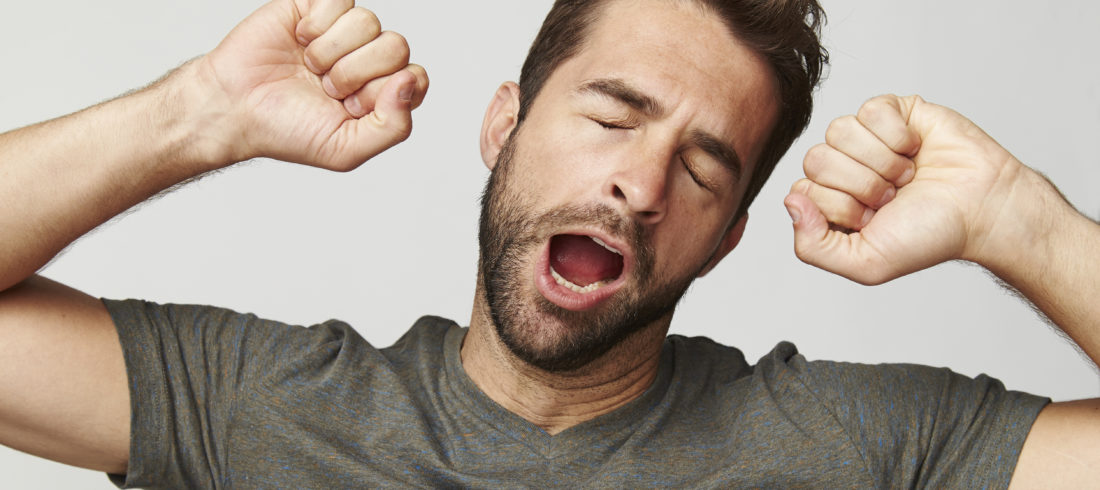Fatigue is one of the most common complaints that people bring to their Primary Care provider. If you are fatigued, let your provider know, because not all fatigue is created equal.
In winter, many adults and young adults experience fatigue. Long hours of darkness, poor weather, and lack of sunlight, can all affect our diurnal rhythms making us less active, and inactivity increases the feeling of tiredness.
A constellation of symptoms called “Seasonal Affective Disorder— “SAD” – can also contribute to fatigue. While the origin of this syndrome is not clear – it may have roots in depression or other mood disorders – it is notable that as one moves to the higher latitudes on this earth, the incidence of depression and SAD increases.
Between 50-70,000,000 Americans have some form of sleep disorder, but probably many more are undiagnosed. The consequences are many and can include depression, poor concentration with increased risk of driving accidents, and in severe cases, may lead to treatment-resistant hypertension, heart disease, memory loss, and even sudden death after extreme and prolonged lack of sleep.
The most common cause of sleep disorders is failure to “budget” enough time for sleep. Many Americans stay awake past 11:00, and must wake up between 5:00-6:00 AM. The need for sleep varies from individual to individual, and also diminishes with age. Teens generally require up to 9-10 hours of sleep while adults need less, approximately 7-8 hours. Senior citizens’ need for sleep goes down, but it is a rare individual who can get by on less than 4 hours of sleep.
To give yourself the best chance of a good night’s rest, the bedroom sleep environment should be set up to your advantage. Televisions and radios shut off, lights turned off, and keeping the room a little cooler (68° is a reasonable temperature setting) will all work to your advantage.
Regular exercise helps sleep disorders. This is for complex reasons, including the change of endorphin balance within the body. Exercise need not be carried out to exhaustion to be successful. As little as 20 minutes a day of a good brisk walk will help (I generally walk my dog in the morning).
Proper diet will also help sleep. Dinner is often the largest meal of the day for most Americans, and most of us should not plan on going to bed immediately afterwards. Doing so puts our metabolism at a disadvantage for processing food, and the hormonal changes in eating, while it may initially make us feel somewhat tired, will wear off, and we’ll wake up later.
Many patients mistakenly resort to over-the-counter medications and supplements in an effort to treat sleep disorders. Using caffeine to stay awake has poor consequences for blood pressure, as well as brain development. Caffeine late in the day invariably disturbs night sleep, yet that’s when most people feel the need for a boost. Most over-the-counter sleep aids are, or become, poorly tolerated, or fade out with use. As we age, the side effects of these sleep aids frequently increase. Similarly, herbal supplements for helping sleep should be approached with great caution. No supplement has been documented by research to provide efficacy and safety, and their sale is unregulated.
As you can see, there are many causes for sleep disorders; these include conditions that usually require your primary care provider to help you sort out. Among them are anemia, a common problem in menstruating women, but one that does not spare men or older women. Diabetes, thyroid disorder, and even Lyme disease, can all contribute to fatigue and sleep disorder.
The most common serious cause of sleep disorders and morning fatigue is sleep apnea. Left untreated, it contributes to hypertension, diabetes, cholesterol disorders, chronic fatigue, and likely contributes to motor vehicle accidents when people fall asleep behind the wheel. It can be spotted by a person waking up choking, or by their sleep partner reporting to them that they snore heavily, or stop breathing. Obesity, age, and a thick neck are risk factors for sleep apnea, but young and thin people can get it, too.
Being tired is not something that you “just have to put up with.” Instead, talk to your primary care provider or an Internal Medicine specialist to find the root cause or causes, and they will work with you to find ways to restore your health and vitality.

